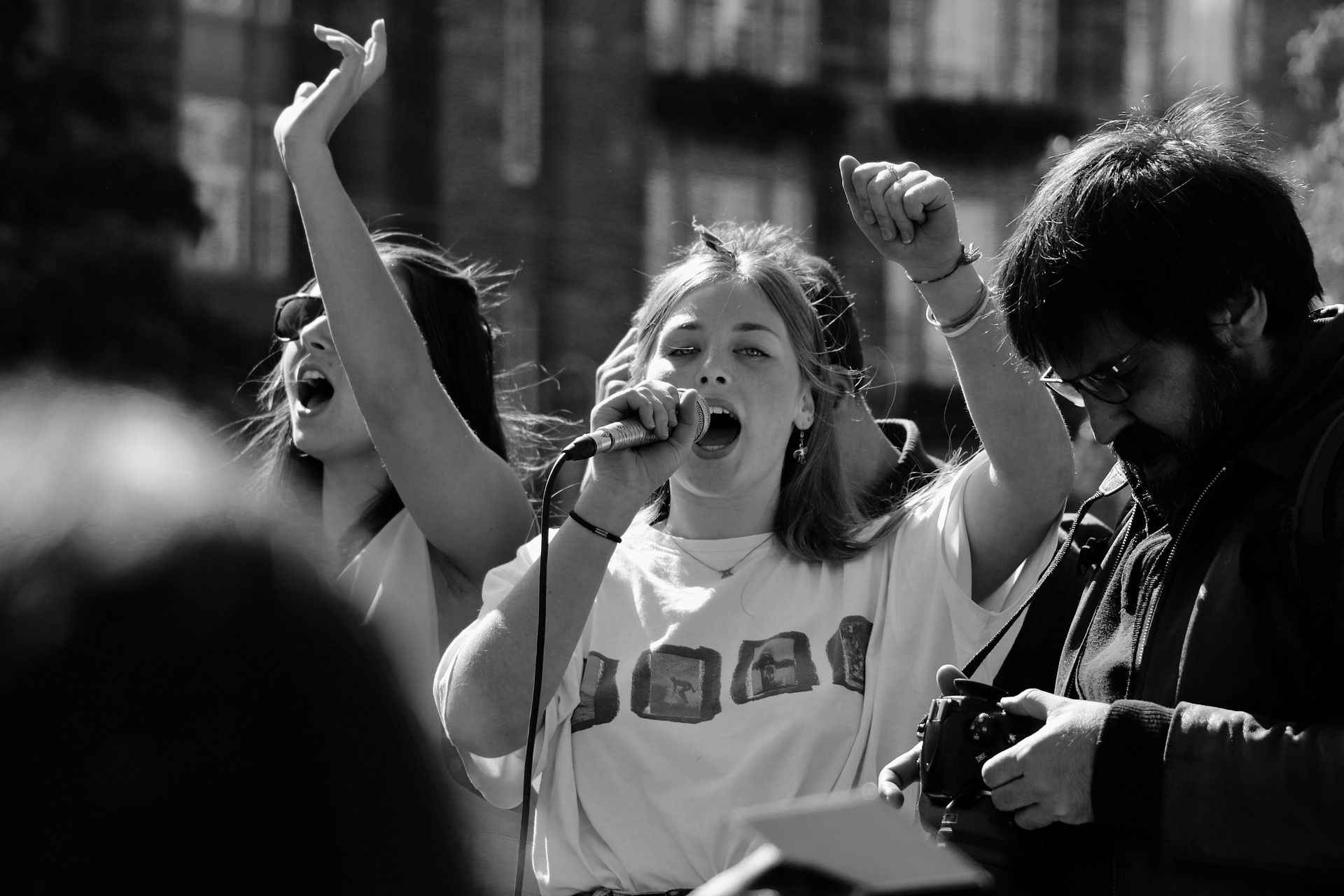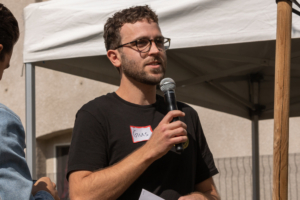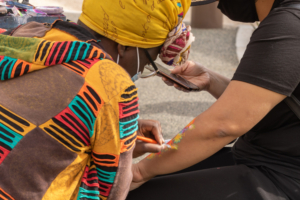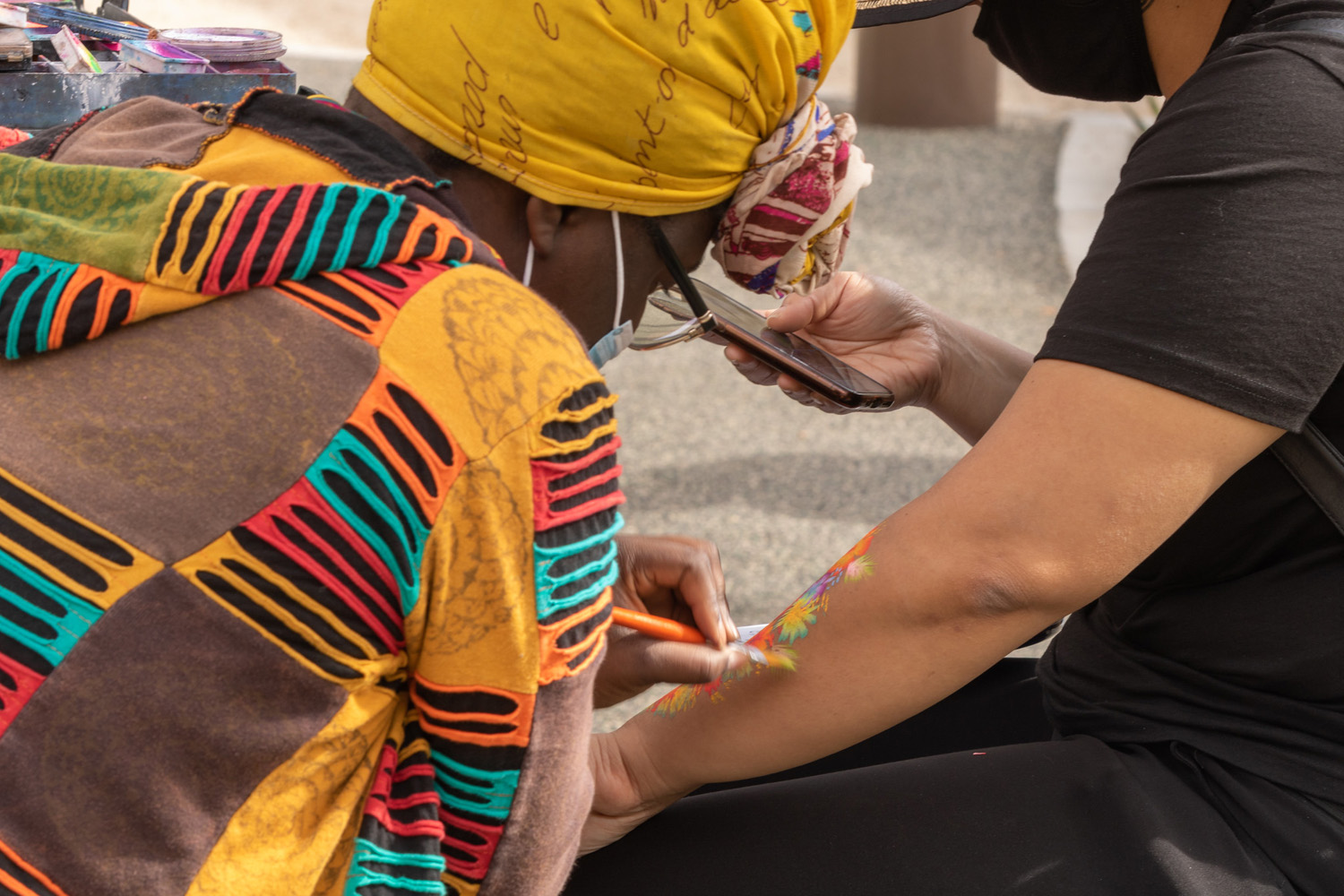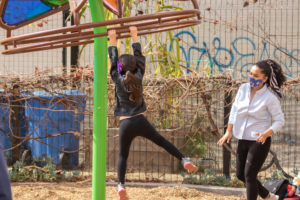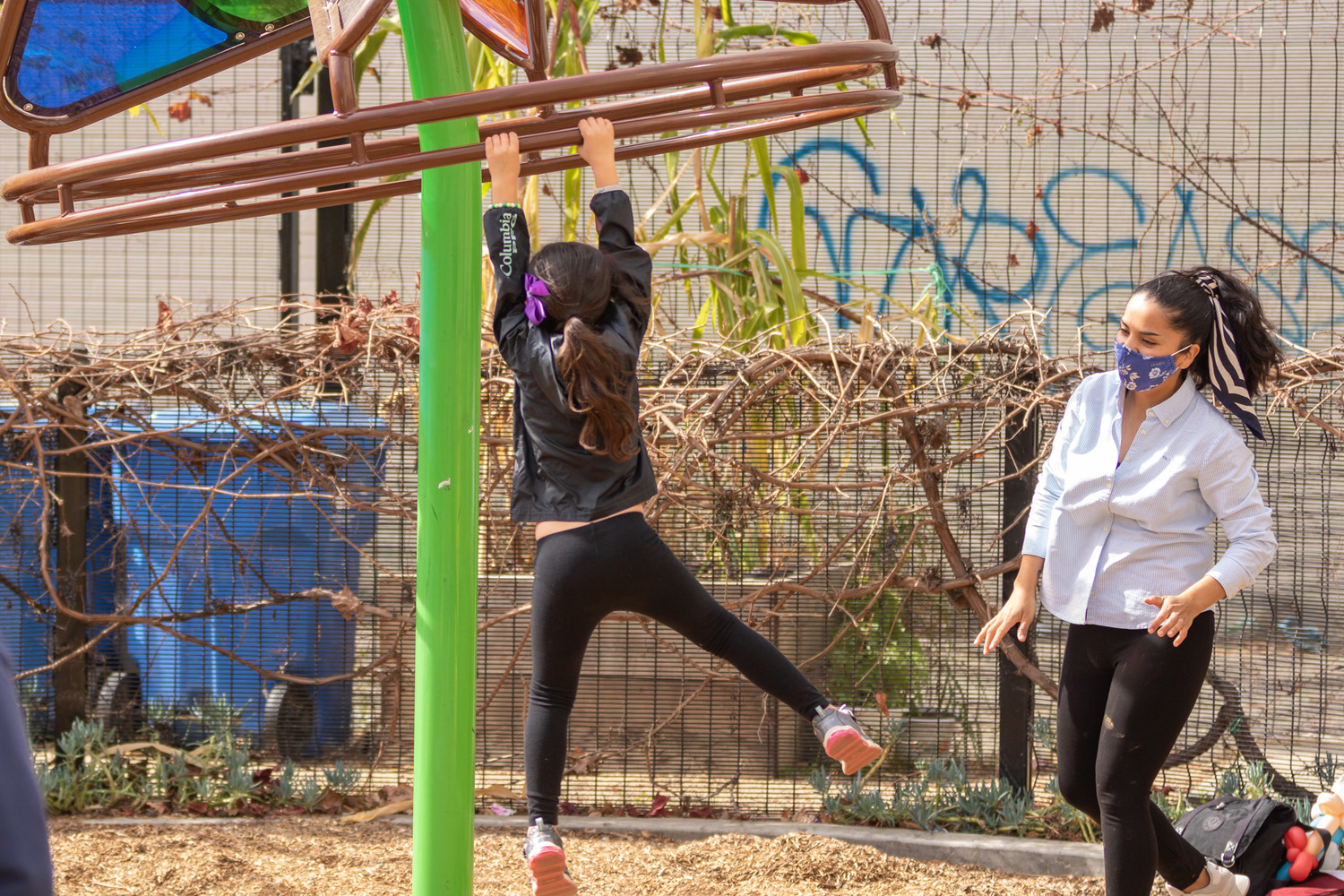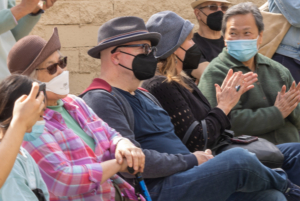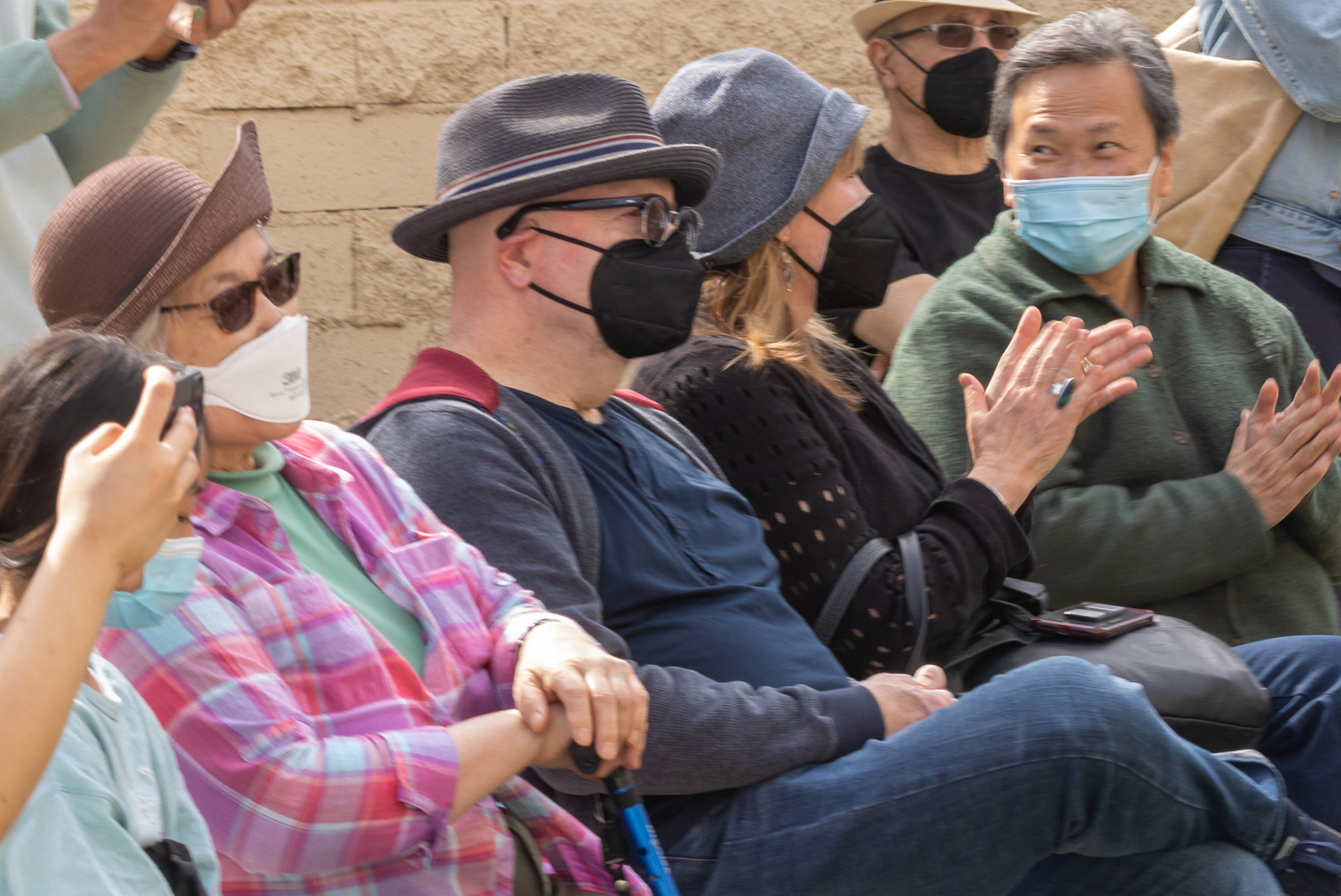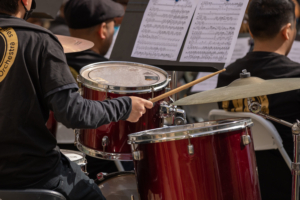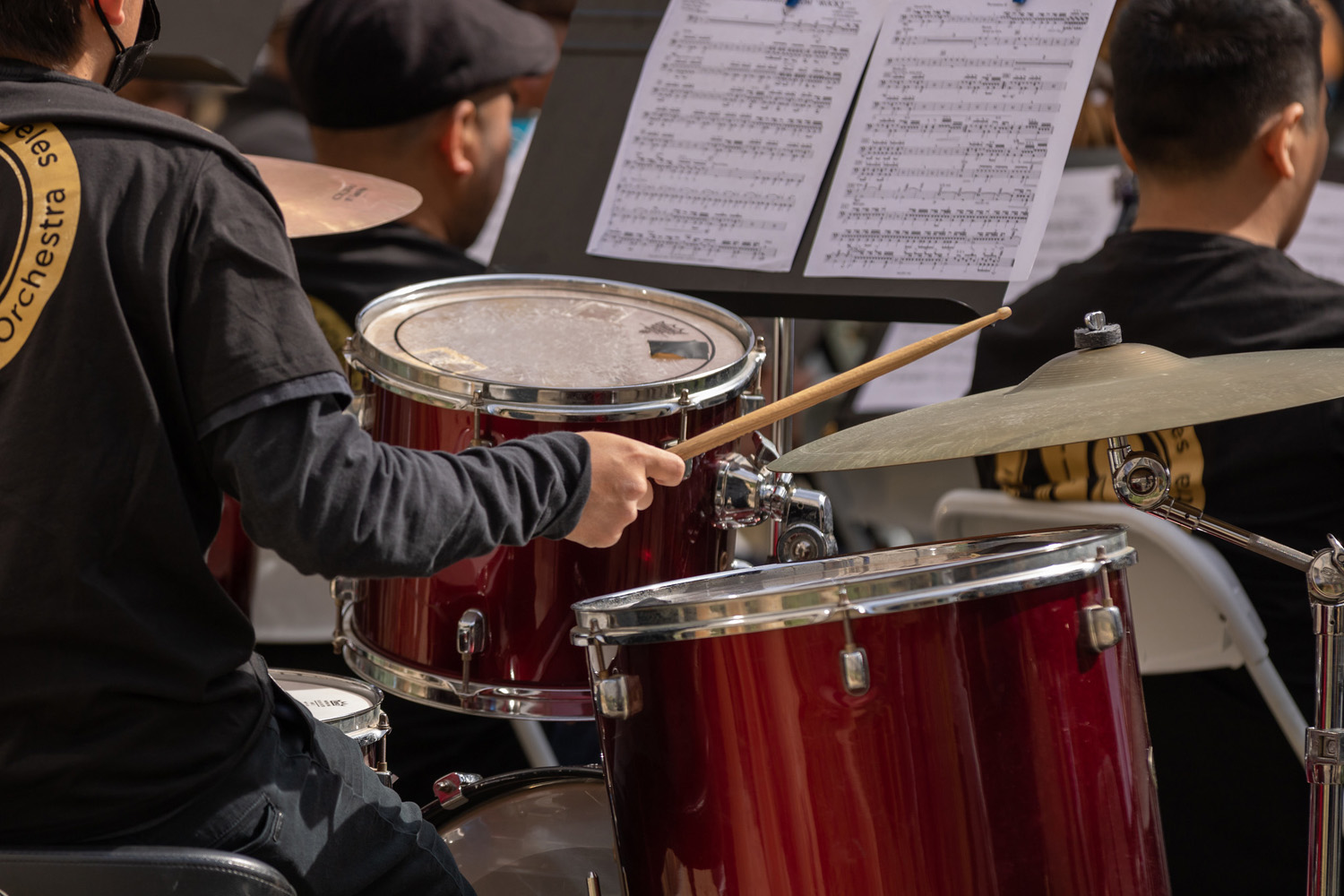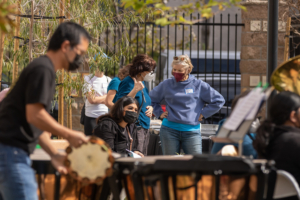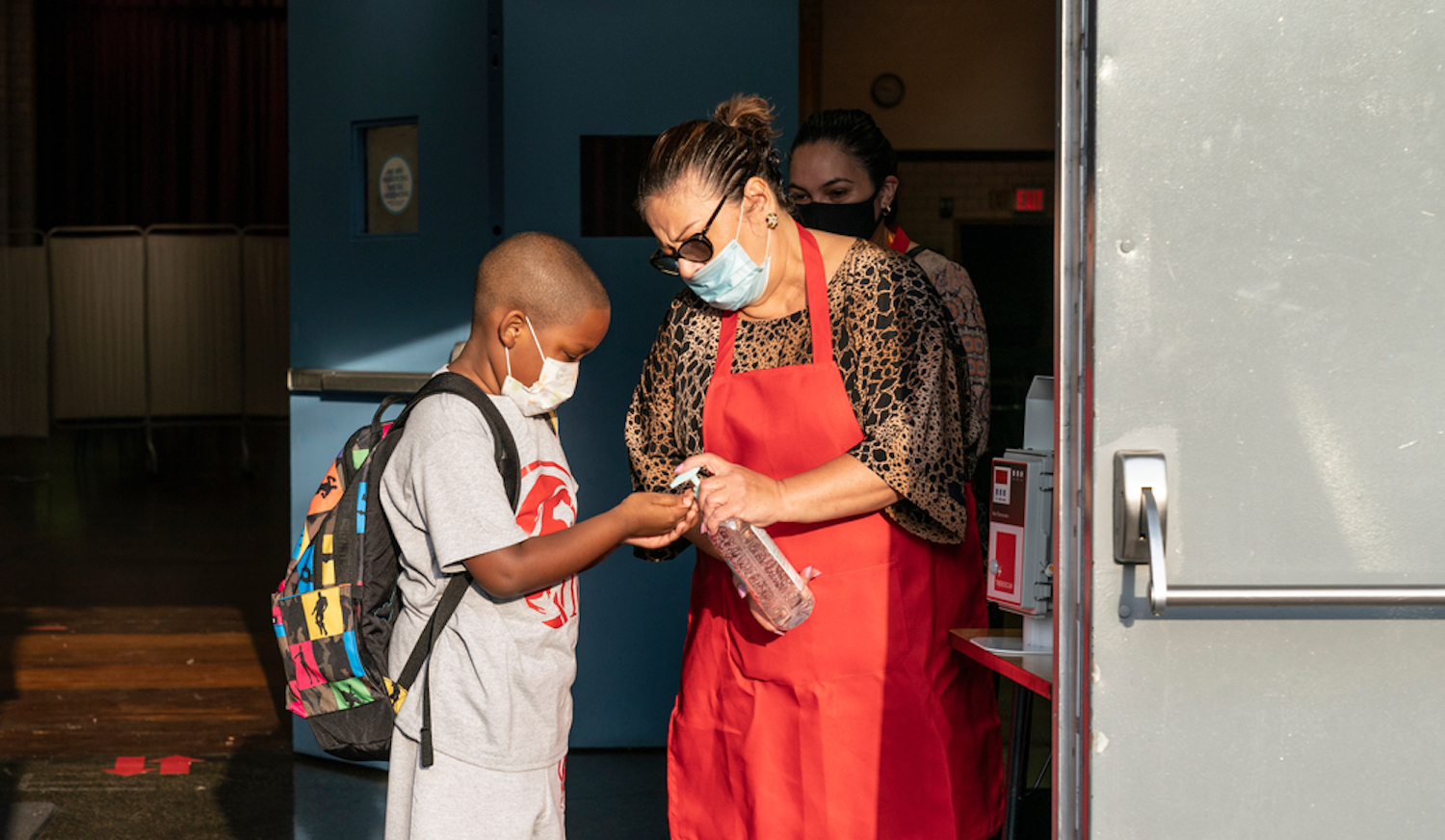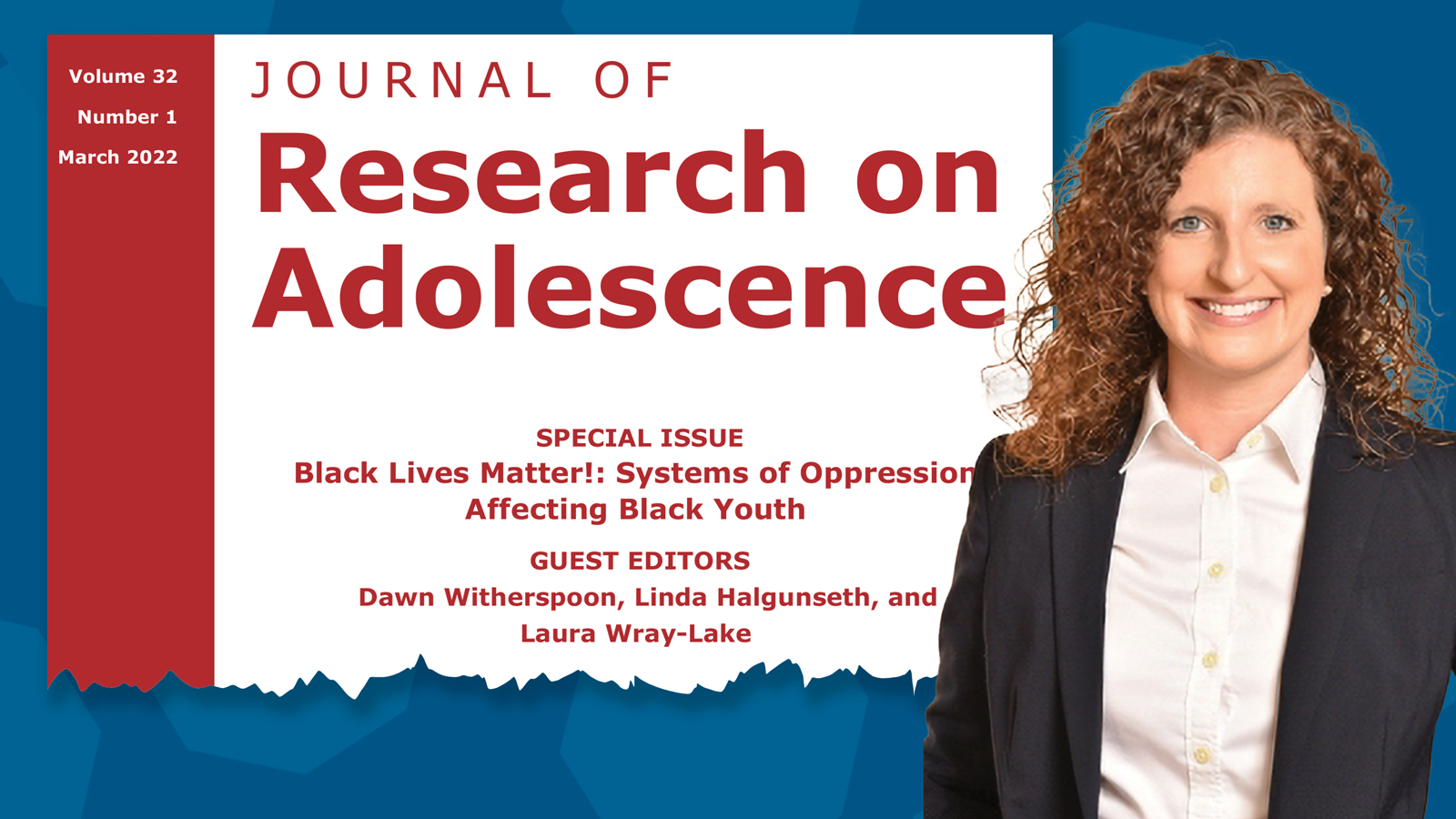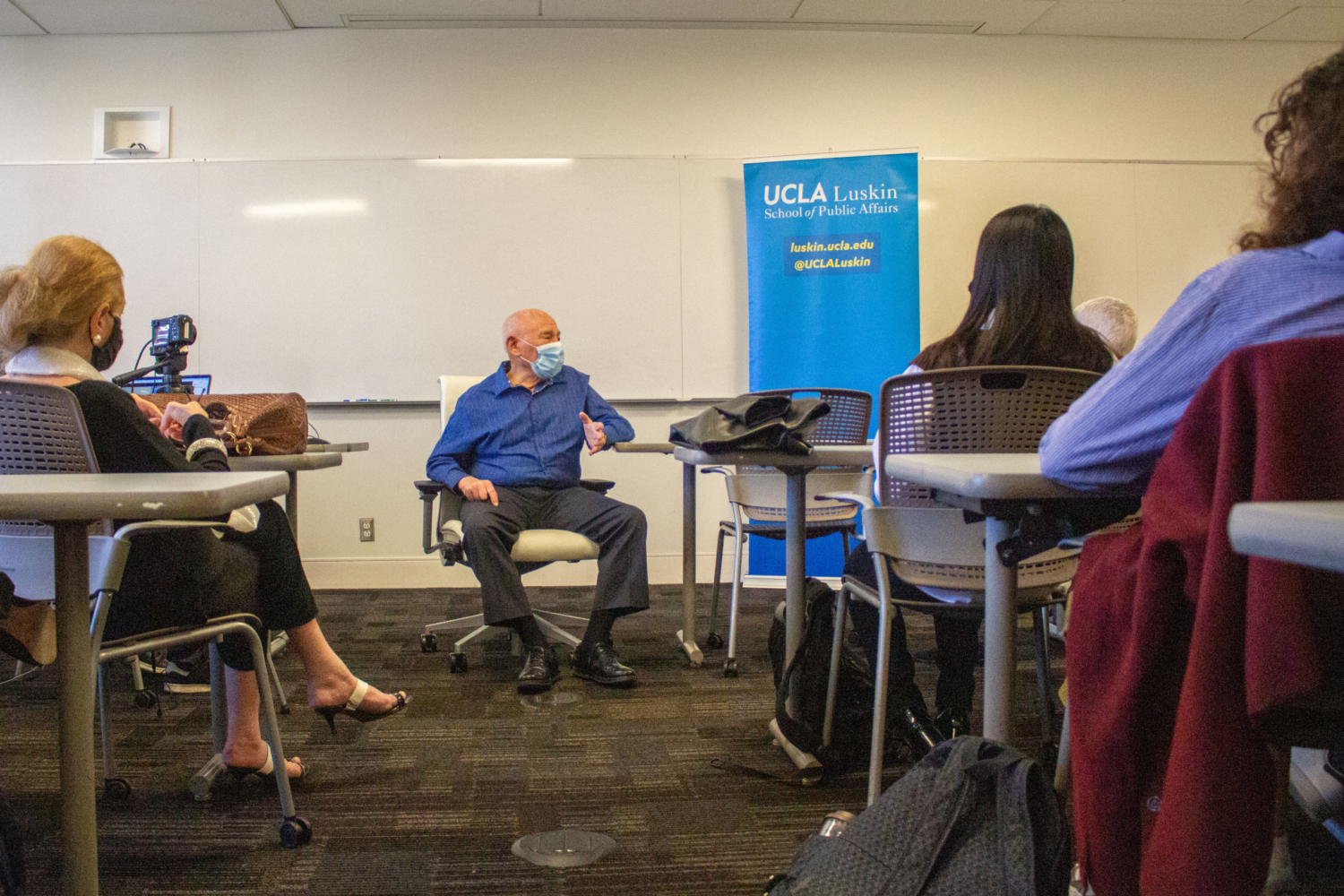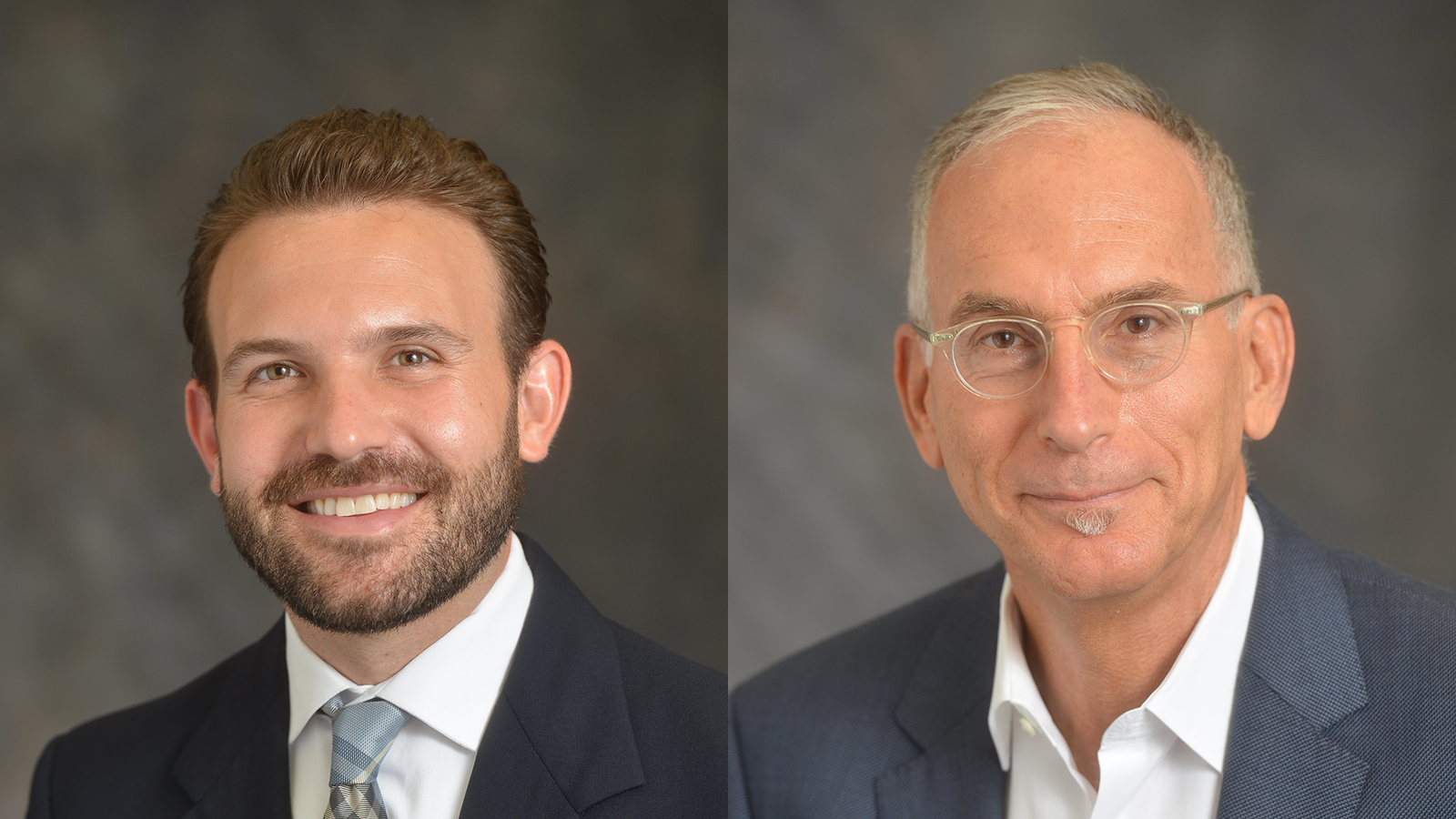Measuring the Trump Era’s Impact on Adolescents’ Sociopolitical Growth
A new paper co-authored by Laura Wray-Lake, associate professor of social welfare, measures the impact of former President Donald Trump’s early months in office on the sociopolitical development of American adolescents. Published today in the journal Child Development, the paper found that adolescents translate what they observe in the political world around them through the lens of their existing beliefs. The study shows that growing divisions in society are also evident among the nation’s youth. The authors, including Wray-Lake, researcher Danielle Dunn and doctoral student Jason Plummer, examined whether approval, disapproval or having no opinion of Trump in 2017 predicted shifts in sociopolitical development in 2018. Using a sample of 1,433 students in 9th through 12th grades who were racially, ethnically, geographically and politically diverse, the researchers measured experiences of marginalization, critical analysis of race and inequality, deliberation skills, and intended and actual political actions. “Youth who disapproved of Trump, especially Latinx youth, felt targeted and marginalized, likely as a product of Trump’s hostile rhetoric and policies toward multiple groups including Latinx immigrants,” the authors wrote. “Meanwhile, young supporters of Trump showed less awareness of inequality and placed less value on racial equality and diversity, suggesting that they may be adopting values and beliefs of like-minded political leaders.” The study also found that both supporters and detractors of Trump increased their capacity to engage politically compared to youth with no opinion. The authors noted that the study is relevant beyond the Trump years, as it offers a reminder that many adolescents are actively paying attention to politics.
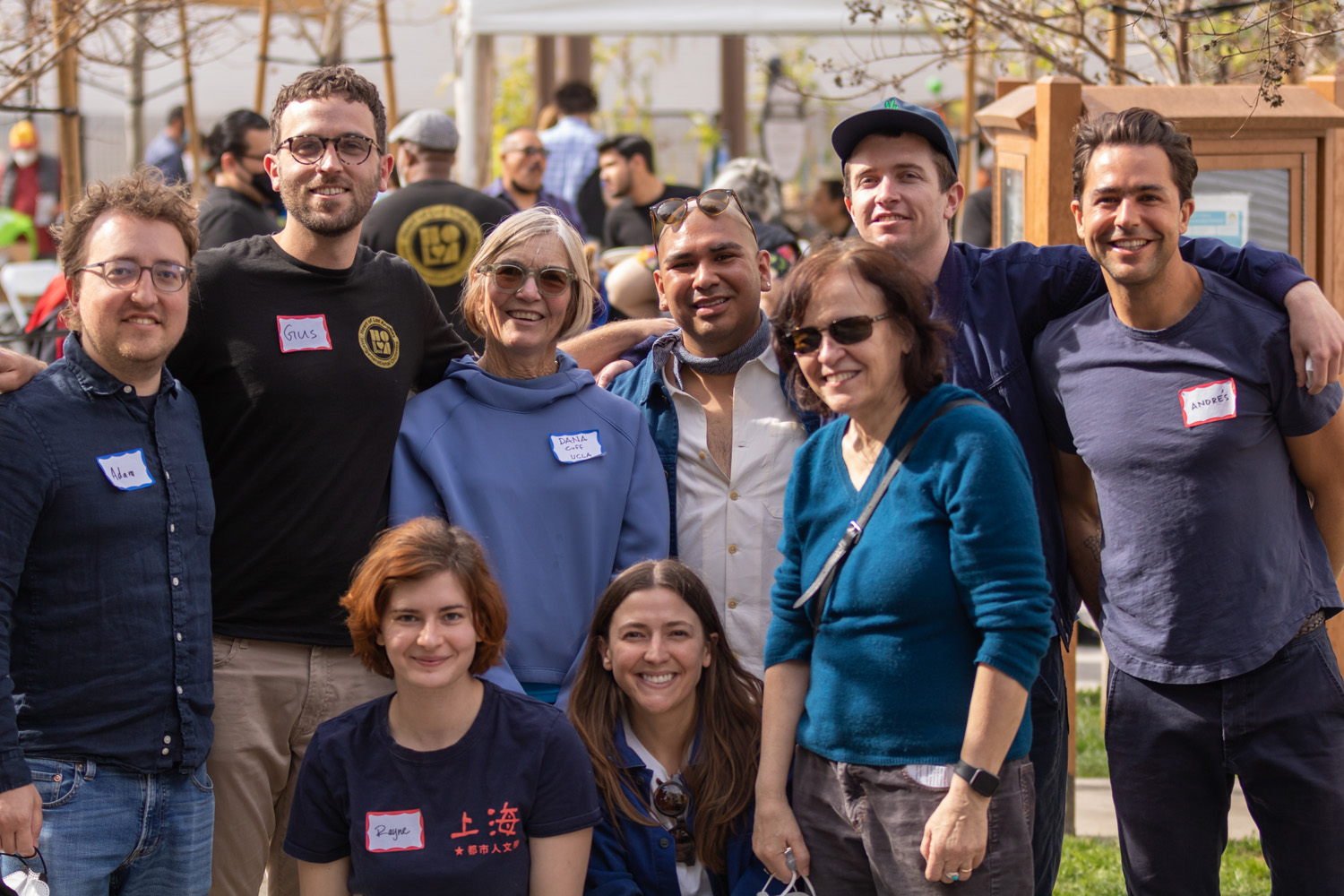
UCLA Luskin Students Host First In-Person Event at Golden Age Park
Students affiliated with the UCLA (Un)Common Public Space group hosted more than 100 attendees on Feb. 26 to celebrate Golden Age Park, a pocket park in the Westlake neighborhood of Los Angeles that incorporates ideas championed by Urban Planning Professor Anastasia Loukaitou-Sideris. The Saturday afternoon event included food, games and music provided by 45 members of the Heart of Los Angeles’ Intergenerational Orchestra. Five members of a Shakespeare troupe also performed an excerpt from “A Midsummer Night’s Dream.” Gus Wendel MURP ’17, a doctoral student in urban planning at UCLA, said the (Un)Common Public Space group was formed in 2021 as a collective of community members, students, researchers, performers and public space activists with the goal of activating public spaces in different neighborhoods using research, performance and community-based events. Usage of Golden Age Park, which opened in 2019, had been hindered by its relative newness and by the COVID-19 pandemic. A primary purpose of the event was to build local awareness of the park’s presence and to promote its intergenerational appeal. “By creating opportunities for people of all ages to share time, space and experiences, intergenerational public spaces support engagement, learning and understanding across generations,” Wendel said. In addition to students in UCLA Luskin’s urban planning program, organizers and supporters included the UCLA Lewis Center for Regional Policy Studies, UCLA cityLAB, the Heart of Los Angeles (HOLA), the Los Angeles Neighborhood Land Trust (LANLT) and St. Barnabas Senior Services (SBSS). The UCLA Urban Humanities Initiative provided additional support, as did the Rosalinde and Arthur Gilbert Foundation.
View additional photos on Flickr:
School Personnel Report Threats, Harassment During Pandemic
Professor Ron Avi Astor and a team from UCLA Luskin Social Welfare contributed to research on the COVID-19 pandemic’s impact on teachers and other school staff as part of a task force launched by the American Psychological Association. In a report released today, the task force found that approximately one-third of teachers surveyed said they had experienced at least one incident of verbal harassment or threat of violence from students during the pandemic. Almost 50% of the teachers expressed a plan or desire to quit or transfer jobs, according to the report, based on a nationwide survey of 14,966 teachers, administrators, school psychologists, social workers and other pre-K through 12th grade school staff. “This was one of the first studies we know of that looked at how both COVID-19 and issues of school safety impacted all school personnel,” said Astor, who holds a joint appointment with the UCLA School of Education and Information Studies. “School staff such as bus drivers, janitors, secretaries, yard aides, crossing guards and cafeteria workers are often left out of these large national studies. Their voices are so important and commonly ignored.” The APA task force will present its findings at a congressional briefing today at 2 p.m. EDT, joined by several national co-sponsoring organizations. The UCLA team that contributed to the findings included Hector Palencia of the Social Welfare field education faculty and doctoral students Laura Liévano-Karim, Natalie Fensterstock, Chaoyue Wu, Kate Watson and Sawyer Hogenkamp. Gordon Capp of CSU Fullerton was also part of the UCLA team. — Joanie Harmon
Register to view the congressional briefing
Wray-Lake Helps Launch Journal’s Series on Racism and Youth
UCLA Luskin scholar Laura Wray-Lake served as co-editor of the March issue of the Journal of Research on Adolescence that features 17 papers and four commentaries that address the sweeping impact of racism and other systems of oppression on Black youth. Titled “Black Lives Matter!: Systems of Oppression Affecting Black Youth,” the special issue calls for new ways to combat racism and intersecting oppressions and improve the lives of Black adolescents. In their introduction, Wray-Lake and co-authors Dawn P. Witherspoon of Pennsylvania State University and Linda C. Halgunseth of the University of Connecticut write that the commentaries “provide a historical view and future perspective to contextualize how far we have come and how much farther we need to go in our quest to combat racism and other systems of oppression and improve the lives of Black adolescents.” The issue kicks off a series in which the journal will be focusing on dismantling systems of racism and oppression during adolescence. Wray-Lake, an associate professor of social welfare at UCLA, will also be co-editor for the second and third parts of the series, and she will be lead editor for the fourth, which will appear in the September issue of the journal.
Meyer Luskin Shares Insights on Responsible Entrepreneurship
Meyer Luskin, benefactor and namesake of the Luskin School of Public Affairs, spoke to UCLA students about leadership skills and responsible entrepreneurship at a March 3 gathering held in person and via Zoom. Luskin shared stories from a long and varied career in investment advising, oil and gas, rental cars, beauty schools and, ultimately, the recycling of food waste. Scope Industries, the company he has led for more than six decades, turns tons of bakery goods that would otherwise have gone to landfills into food for livestock. “Meyer is a businessman who invented a business, and that’s not common,” UCLA Luskin Dean Gary Segura said at the event. “Meyer had an idea, and his idea was to take something most people threw away and make it into something useful.” Luskin’s talk included stories from his own UCLA education, which was interrupted by a tour of duty during World War II, and his experiences facing anti-Semitism as a young businessman. Luskin advised students embarking on their careers to examine their motivations, acknowledge conflicts of interests and uphold the highest ethics. “You have to be retrospective about yourself,” he said. “You have to take time to think about what you’ve done and where you’re going and who you are and what you want.” He encouraged those blessed with success in business to act responsibly and generously. “The first principle is get good people, pay them well, think about them,” he said. “When you do something that’s right, it comes back and helps you. … It just works that way in a long life.”
View photos and a video from the event.
UCLA Luskin Scholars Receive Fulbright Awards
Two UCLA Luskin Social Welfare faculty members have been named Fulbright awardees by the U.S. Department of State and the Fulbright Foreign Scholarship Board. Professor of Social Welfare Mark S. Kaplan received a Fulbright Specialist Award, which will allow him to complete a project at Universidad Carlos III de Madrid in Spain in the Department of Social Sciences. Professor of Social Welfare Ian Holloway received a Fulbright U.S. Scholar Award, which enables American scholars, artists, faculty and professionals to lecture and conduct research abroad for up to a year. Kaplan, now a four-time Fulbright awardee, said the main focus of his project with the Spanish university is to help “design and plan internationalization strategies for their research that maximize the impact of their work.” The Fulbright Specialist Program sends U.S. faculty and professionals to serve as expert consultants on curriculum, faculty development, institutional planning and related subjects at academic institutions abroad for two to six weeks. Holloway will spend four months as a visiting scholar at Universidad de Los Andes and work in partnership with a community-based organization in Bogotá, Colombia, that serves transgender people engaged in human rights organizing. The Fulbright Program is the flagship international educational exchange program sponsored by the U.S. government and is designed to build connections between the United States and other countries. The program, which operates in over 160 countries, was established in 1946 and has provided more than 400,000 students, scholars, teachers, artists and scientists the opportunity to study, teach and conduct research, exchange ideas, and contribute to finding solutions to shared international concerns.
Luskin Summit Takes On Global Climate Justice
Assistant Professor of Urban Planning Kian Goh led a dialogue about equity, grassroots activism and climate change in the Mar. 2 Luskin Summit webinar “Cities and Global Climate Justice.” Goh, who serves as associate faculty director of the UCLA Luskin Institute on Inequality and Democracy, started the conversation by discussing community-based activism in Jakarta, Indonesia. Eric Chu of UC Davis spoke about competing visions of the urban built environment and the power of activist groups to reimagine what their communities will look like through a lens of justice and equity. Hugo Sarmiento of Columbia University noted that, in Colombia, the main drivers of risk are social, economic, political and oftentimes racial exclusion from the housing market. “Residents have already been displaced by war and conflict, and now they are being displaced by the city,” he explained. Idowu “Jola” Ajibade of Portland State University said issues such as environmental degradation, homelessness, joblessness, and lack of access to sanitation and health care affect the way that climate change is perceived in the Global South, where many communities are already marginalized. “The ways in which people are challenging the system also helps us think about how we might transform the urban society more equitably,” Ajibade said. Kasia Paprocki of the London School of Economics and Political Science discussed how the transition from a rural to urban economy is seen as a necessary and even positive development, which dismisses the experiences of many of the individuals being displaced. Michael Fleming of the UCLA Luskin Board of Advisors was on hand to welcome the panelists.
